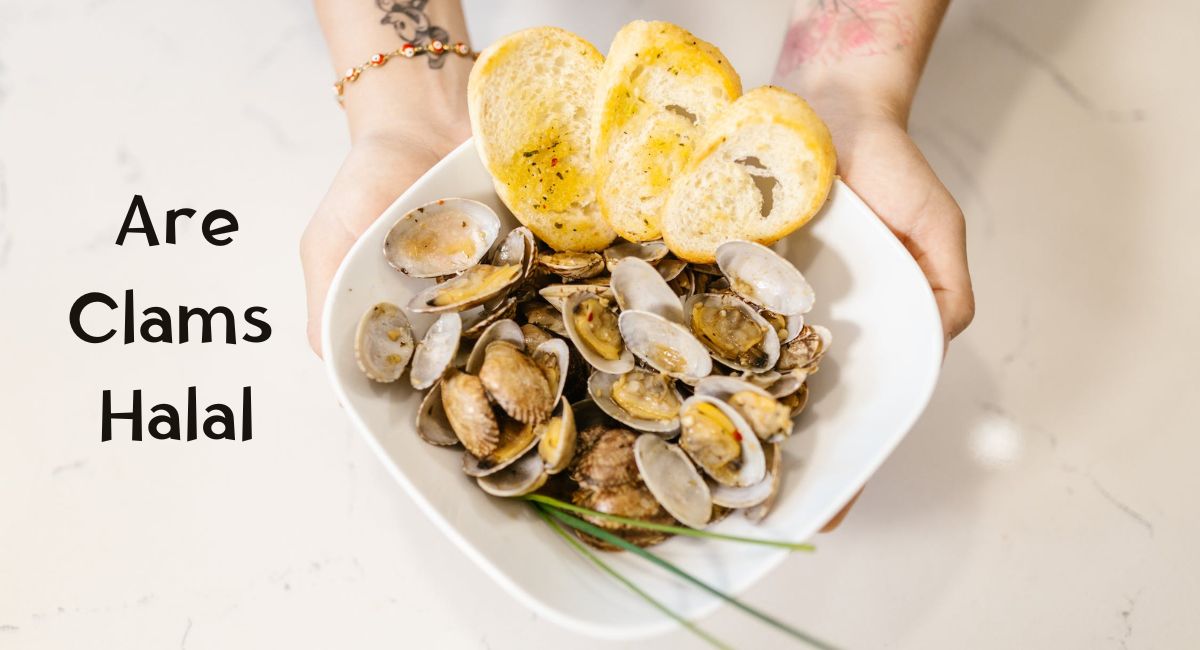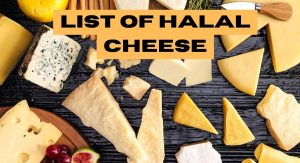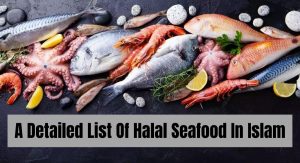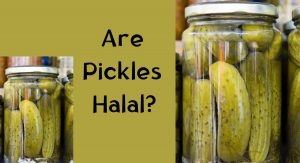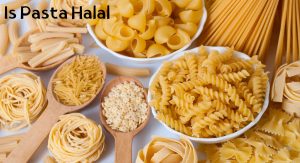When it comes to Islamic dietary laws, halal is the term used to describe food that adheres to these religious guidelines. Muslims around the world follow strict halal regulations on what they can and cannot eat. However, as with any religious practice, there are often questions surrounding specific foods and their eligibility under these rules.
One such example is clams. While some may argue that clams should be considered halal due to their status as seafood, others claim otherwise. To truly understand whether or not clams are halal requires a deeper dive into both Islamic law and the biology of these unique mollusks.
In this article, we will examine all aspects of this question so that you can better understand where clams stand in terms of halal compliance. Let’s get started!
About Clams – An Overview
Clams are bivalve mollusks that belong to the class Bivalvia. They are commonly found in both marine and freshwater environments. They have two shells of equal size, which are connected by two adductor muscles and are closed tightly by these muscles. This anatomical feature allows them to protect their soft body parts.
True clams, in the strict sense, have equal shells and a powerful, muscular, burrowing foot. They are usually found buried in the sand in shallow marine waters. Clams have a unique feeding and respiration mechanism. They draw in and expel water through two tubes called siphons. Water is taken in through one siphon, and the filtered food particles and oxygen are extracted while the water is expelled through the other siphon.
There are various species of clams, and they can be found in different habitats. While the majority of clam species live in marine environments, some can also be found in freshwater rivers, streams, and lakes. Clams play a significant role in aquatic ecosystems, contributing to nutrient cycling and serving as a food source for other organisms.
In terms of nutrition, clams provide several health benefits. They are a good source of omega-3 fatty acids, specifically DHA and EPA. Omega-3 fatty acids are essential for brain health and reducing the risk of cardiovascular diseases. A 6-ounce serving of clams can provide approximately 337 mg of omega-3.
It’s important to note that the term “clam” can also refer to specific species or varieties of clams, such as the Asian clam. Asian clams are small bivalve mollusks with distinct concentric ridges on their shells and fine serrations or teeth on the inside. These teeth help distinguish them from native fingernail clams.
Are Clams Considered Seafood?
Yes, clams are considered seafood. Seafood refers to any form of marine life that is regarded as food by humans. It includes a variety of organisms, such as fish, mollusks (including clams and oysters), crustaceans (such as shrimp and lobster), and echinoderms. Clams, being bivalve mollusks, fall under the category of shellfish, which is a common type of seafood.
Clams are commonly consumed by people around the world. Their nutritious qualities and unique flavor make them a popular ingredient in various culinary preparations.
It’s worth noting that the term “seafood” is generally associated with marine life. However, some sources suggest that the term can be used more broadly to include freshwater organisms as well. In this context, clams found in freshwater rivers, streams, and lakes may also be considered a type of seafood.
Are Clams Halal or Haram?
In Islamic dietary law, foods are categorized as halal (permissible), haram (forbidden), or makruh (discouraged but not sinful). The status of seafood, including clams, can vary depending on the interpretation of Islamic law (Sharia) by different scholars and communities.
Many believe that all seafood is halal according to the following verse from the Qur’an:
“Lawful to you is game from the sea and its food as provision for you and the travelers, but forbidden to you is game from the land as long as you are in the state of ihram. And fear Allah to whom you will be gathered.”
(Surah Al-Ma’idah 5:96)
Based on this interpretation, clams would be included among animals permitted for consumption since they live solely in water and are not known to cause harm if prepared properly.
However, some Islamic scholars and traditions, particularly within the Hanafi school of thought, argue that only “fish” (defined in various ways, often as creatures with scales and fins) are halal, and thus classify shellfish, including clams, as makruh or haram.
So, whether clams are considered halal or haram can depend on one’s specific interpretation of Islamic law and tradition. It is always best to consult with a trusted religious authority or scholar in your community if you have questions about what is permissible for you to eat.
Why Clams Are Halal or Haram?
In Islam, seafood is generally considered permissible and halal to consume as long as it meets certain requirements. Clams fall under the category of shellfish, along with other creatures like crabs, shrimp, octopus and squid.
According to Islamic teachings, for an animal or sea creature to be considered halal, it must have scales and fins. However, since clams do not have scales or fins, they are typically not thought of as being halal at first glance.
But when we look closer at the issue from an Islamic perspective, we can see that clams are actually considered permissible for consumption by many scholars in the Hanafi school of thought. This is due to a difference in interpretation regarding what qualifies as a seafood that is fit for eating.
Therefore, while there may be differing opinions among Islamic scholars regarding whether clams are truly halal or haram (forbidden), overall it seems there is evidence suggesting they can indeed be enjoyed by Muslims who follow certain schools of thought.
Ultimately, it is up to individual Muslims to decide whether or not they want to consume clams based on their personal beliefs and interpretation of Islamic teachings. As with any food item or dietary restriction in Islam or any other religion, it’s important for individuals to seek guidance from qualified religious authorities if they have any questions or concerns regarding what is permissible for consumption according to their faith.
Health Benefits and Nutritional Value of Clams
Clams are an excellent source of several important nutrients, making them a valuable addition to a balanced diet. Here’s a look at some of the main health benefits and nutritional value of clams:
- Protein: Clams are a great source of lean protein, which is essential for building and repairing body tissues, producing enzymes and hormones, and supporting overall growth and development.
- Vitamin B12: Clams are one of the best sources of vitamin B12, a nutrient that’s crucial for nerve function and the production of DNA and red blood cells.
- Iron: Clams are rich in iron, a mineral that plays a vital role in the production of hemoglobin, a protein that helps red blood cells deliver oxygen throughout the body.
- Selenium: This mineral, found in clams, is important for cognitive function, a healthy immune system, and fertility in both men and women.
- Omega-3 Fatty Acids: Clams, like many other types of seafood, contain omega-3 fatty acids, which are associated with heart health. Omega-3 fatty acids have been linked to reduced inflammation and a lower risk of heart disease.
- Zinc: Clams are a good source of zinc, which supports immune function and wound healing, and is essential for the sense of taste and smell.
- Low in Fat and Calories: Clams are low in fat and calories, which can be beneficial for those trying to maintain or lose weight.
- Cholesterol: While clams do contain cholesterol, it’s important to note that dietary cholesterol doesn’t affect blood cholesterol levels as much as once thought. The American Heart Association recommends eating a variety of nutritious foods from all food groups, and seafood, including clams, can be a part of a heart-healthy dietary pattern.
Remember, while clams have many health benefits, they can also pose risks for some people, especially those with shellfish allergies or those who are pregnant or nursing, due to potential contamination with harmful bacteria or toxins. As with any food, it’s important to consume clams as part of a balanced diet and to make sure they’re cooked properly to reduce the risk of foodborne illness.
How to Cook Clams?
Cooking clams is a delightful way to savor the briny and succulent flavors of these delectable mollusks. Whether you’re a seafood enthusiast or looking to explore new culinary horizons, preparing clams at home can be a rewarding and enjoyable experience. With a variety of cooking methods available, from steaming and grilling to incorporating them into soups and pasta dishes, there’s a recipe to suit every taste.
Steaming Clams
Whether you’re enjoying them on a beachside vacation or preparing a delightful meal at home, steamed clams offer a delectable experience that captures the essence of the ocean. Below, we’ll explore the art of steaming clams, from selecting the freshest ingredients to mastering the cooking process.
- Take a large, heavy-bottomed saucepan with a well-fitting lid and fill it with a few inches of liquid such as water, wine, cider, or fish stock.
- Place the clams in a steamer basket or colander and put them into the saucepan, making sure they are not submerged in the liquid.
- Cover the saucepan with the lid and bring the liquid to a rapid simmer.
- Steam the clams for about 2 minutes, shaking the pan occasionally, until the clam shells open.
- Once the clams have opened, they are ready to be served. Discard any clams that do not open during cooking.
Cooking Clams in a Saucepan
With their tender flesh and briny taste, clams make for a delectable addition to a variety of dishes, from classic linguine with clam sauce to hearty chowders. Below, we will explore the art of cooking clams in a saucepan, from selecting the freshest ingredients to mastering the perfect balance of flavors.
- Preheat a large saucepan over medium heat.
- Melt butter in the saucepan and stir in minced garlic. Cook the garlic until it turns tan in color, being careful not to burn it. If the garlic gets overcooked or burned, discard both the fat and the garlic and start over.
- Add your desired liquid (e.g., wine, broth) to the saucepan and bring it to a boil.
- Add the clams to the boiling liquid and cover the saucepan with a lid.
- Steam the clams until they open, which typically takes around 7-8 minutes. Shake the skillet occasionally while steaming.
- Once the clams have opened, remove them from the saucepan using a slotted spoon and serve them with the flavorful liquid.
Baking or Grilling Clams
Baking and grilling both enhance the natural flavors of these delectable shellfish while adding a unique touch to your culinary creations. Whether you prefer the gentle heat of an oven or the smoky essence of a grill, preparing clams in these ways offers a delightful and mouth watering dining experience.
- Preheat your oven to 425°F (220°C) or prepare a grill for medium-high heat.
- In a small bowl, whisk together butter, minced garlic, lemon juice, horseradish, hot sauce, and salt to create a flavorful mixture.
- Divide the clams between two pans or create individual aluminum foil packets for each serving.
- Spoon the butter mixture over the clams, ensuring they are well-coated.
- If baking, place the clams in the oven and cook for about 10-12 minutes until the clams open. If grilling, place the clams on the grill and cook for a similar duration, until the shells open.
- Once cooked, remove the clams from the oven or grill and serve them hot.
Please note that it’s important to handle clams properly to ensure food safety. Before cooking, discard any clams that have cracked or broken shells and any that do not close when tapped.
Additionally, always make sure to thoroughly clean the clams before cooking them to remove any sand or grit. You can do this by rinsing them in cold water and scrubbing their shells with a brush. It’s also advisable to consult specific recipes or additional sources for more detailed instructions.
Conclusion
Clams are considered halal in Islam as they are a type of seafood that is permissible to eat according to the Quran. Although some scholars may have differing opinions on this matter, the majority agree that clams and other shellfish are allowed for consumption by Muslims.
It’s important to note that not all seafood is halal, and it’s necessary to ensure that any animal or creature being consumed meets certain criteria set forth by Islamic law. In any case, it’s always best to consult with an Islamic scholar or school of thought if you’re unsure about the permissibility of a particular food item.
Frequently Asked Questions
1. Do clams have scales and fins?
Clams do not have scales and fins. They are mollusks, specifically bivalve mollusks, and their bodies are enclosed in a shell with two halves. Unlike fish, which possess scales and fins, clams have a different anatomical structure. They have a soft body that resides within the protective shell, and they use a muscular foot to burrow into the sand or substrate.
2. Are clams good to eat?
Yes, clams are generally good to eat and are enjoyed by many people. They’re a lean source of protein and are also rich in minerals, including iron, selenium, and zinc. They’re also a good source of Vitamin B12. However, like any seafood, it’s important to ensure that they are fresh and properly cooked to avoid any potential foodborne illnesses. People with shellfish allergies should also avoid eating clams.
3. Are clams like prawns?
Clams and prawns are both types of seafood, but they are quite different. Clams are a type of bivalve mollusk, meaning they have a two-part shell and live buried in sand or sediment. They’re filter feeders, consuming plankton and other microscopic sea creatures. Prawns, on the other hand, are a type of crustacean, like lobsters and crabs. They have an exoskeleton and jointed legs, and they eat a variety of foods, including plants and smaller animals. The taste and texture of clams and prawns are also quite different.
4. Why are clams so expensive?
The cost of clams can depend on several factors. One major factor is the process of harvesting them, which can be labor-intensive and time-consuming, especially for certain types of clams that are hand-harvested. Transportation costs can also add up, particularly for fresh clams that need to be shipped quickly to markets. The demand for clams can also affect their price, with certain types of clams being considered a delicacy in some cultures.
5. Are clams eaten raw?
Yes, some types of clams are often eaten raw, especially in dishes like clams on the half shell or in ceviche. However, like all raw seafood, there’s a risk of foodborne illness, so it’s important to ensure that the clams are very fresh and have been handled and stored properly. It’s also recommended to consume raw clams at reputable restaurants or seafood markets to ensure their quality and safety. Cooking clams can kill harmful bacteria and parasites, making them safer to eat.
6. How are clams different from Oysters?
Clams and oysters are both bivalve mollusks, but they have a number of differences. Clams can be found in both freshwater and marine environments, whereas oysters are strictly marine. Moreover, clams generally have rounder, smoother shells. Oyster shells, on the other hand, are usually more irregular and rough. The taste and texture of meat also differ significantly between clams and oysters. Clam meat is often described as sweet and a bit chewy, while oyster meat is usually described as briny and smooth.
